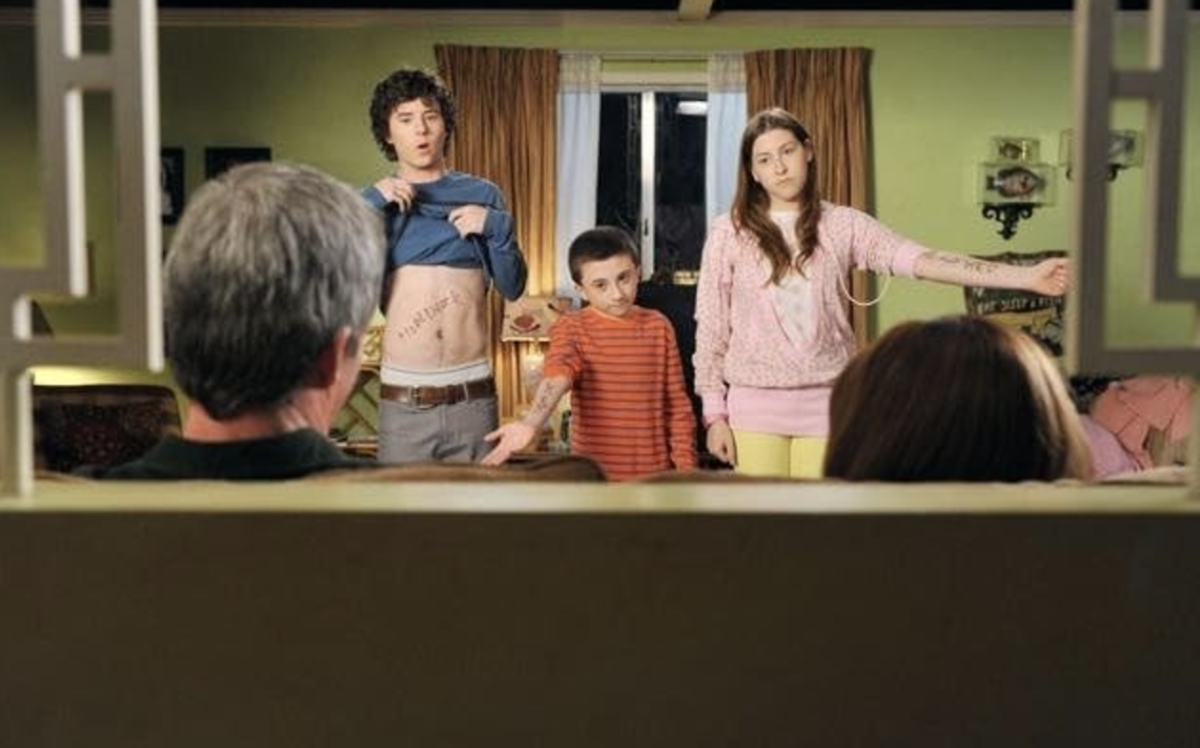
Who doesn’t love Jason Bateman? His career spans a long list of hilarious roles, from the straight-laced Michael Bluth to an employee pushed to the edge in “Horrible Bosses.”
In nearly every movie, he’s a relatable everyman you can’t help but adore, which is why his part in “Bad Words” is so jarring. His character, Guy Trilby, is an introverted grouch with a tongue that would make Tony Soprano blush.
“Bad Words,” Bateman’s directorial debut, tells the travails of Trilby, a man with a layered past that has left him an obnoxious loner. He’s a man with no friends and a reservoir of lacerating insults he hurls at anyone who looks at him sideways. Trilby enters a national spelling bee through a loophole that makes him eligible to compete against 9 and 10-year-olds.
From the first scene, in which he deflects a friendly advance from a spelling bee parent, you know this guy is no good. Nearly every word he spews is venom. At times, Trilby’s lines are unsettling. Even the amiable Bateman fails to turn all the bad words into the hilarious jokes the movie wants them to be. Some bad words are better left unsaid.
Not all of these comments come too coarsely, however. As Trilby warily lets down his guard around Chaitanya (Rohan Chand, a promising newcomer), he teaches the overly regimented boy that more often than not, words are just words. Sometimes it’s OK to use bad words, Trilby argues. He explains how swearing can release pent up frustration, and so long as they’re not used to harm others, these words can actually help us. At these times, Trilby’s logic gains clarity.
One of the most repeated words of “Bad Words” is why. Why is this brilliant man slashing the dreams of young children? Why is he so angry at the world? Why take out his anger at a spelling bee, of all places?
Jenny Widgeon (Kathryn Hahn) serves as the audience’s delegate to Trilby as a reporter and his sponsor who digs into his past. Andrew Dodge’s script doesn’t reveal an original secret, and I’m not sure it truly justifies Trilby’s conquest. It might soften Trilby for some viewers, but I often felt that he was a jerk throwing a tantrum because the world has never listened to him.
The bitter protagonist would have been detestable if not for Bateman’s portrayal. Even when Trilby fends off his countless critics with a merciless mouth, Bateman fills his eyes with a sense of loss that’s impossible to miss. His scenes with Chaitanya are pure fun, even if they stray off course in amorality (Trilby liquors up the 10-year-old for a night of law-breaking).
Despite these flaws, Trilby is actually one of my favorite Bateman roles. Trilby isn’t as subtle as Michael Bluth, nor is he as sympathetic as Bateman’s soul-searching father in “Juno.” This role is more in line with his introvert from “The Switch,” a criminally under-watched comedy. As in that film, Bateman’s delivery conceals a well of melancholy with dry humor. Trilby is more complex than any of those roles, and far more unlikable, making for Bateman’s finest acting to date.
Bateman’s performance reaches new heights as he lowers Trilby’s guard around Chaitanya. We see the troubled childhood that stunted Trilby’s growth. In many ways, he’s still a 10-year-old like Chaitanya, trapped in an aging body belied by his maturity. That he can’t escape his body is Trilby’s tragedy.
The direction plays out more smoothly than one could expect from a first-time director. The style, the camerawork, the movie itself are all superior to Dodge’s coarse script. Bateman colors each frame with a muted palette of warm gold and yellow, like the sheen of a burnished trumpet. For a low budget comedy, “Bad Words” boasts some beautiful shots.
The theater will be a chorus of uneasy laughter, oscillating between guffaws and headshaking, but “Bad Words” won’t fail to entertain. It offers a wealth of cringe-worthy moments with the unrestrained Trilby, gives newcomer Rohan Chand the chance to shine and contains Bateman’s finest work.
A clever tagline states, “The end justifies the mean.” By the end, that’s still up for debate. I’m not sure Trilby’s motivations do justify his cruelty, but perhaps that’s the uneven script’s greatest asset. The story turns Trilby into an interesting, albeit polarizing, protagonist. It’s no comedic classic, but you’ll come away glad you saw it. That is, if you can endure the barrage of bad words.
Alex Frail can be reached at [email protected].


















